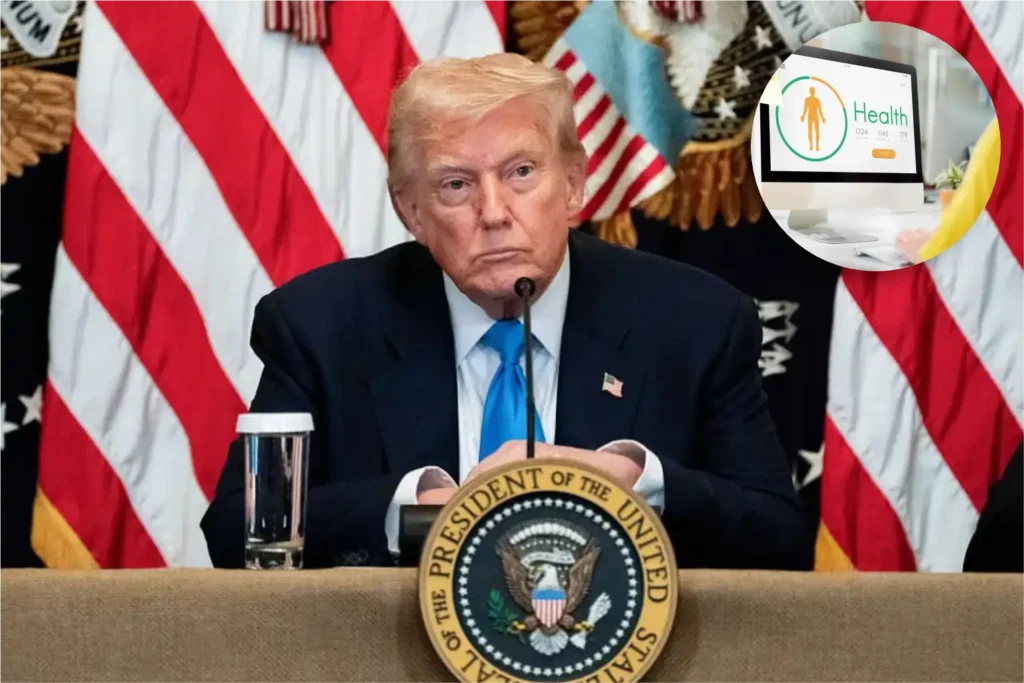
In a push to modernise healthcare accessibility, former US President Donald Trump announced a new private health tracking system designed to give patients seamless access to their medical records across platforms and providers.
Touted as a step toward “Making Health Technology Great Again,” the initiative involves collaboration between the federal government and major Big Tech firms, including Apple, Google, and Amazon, as well as healthcare giants like the Cleveland Clinic and UnitedHealth Group.
Announced at a White House event, the system proposes to centralise patient health data through the Centers for Medicare and Medicaid Services (CMS). The aim is to empower users to track wellness metrics, lab results, and even lifestyle patterns across various apps and technologies. Patients would have to opt in to participate, and their data, officials claim, will be stored securely.
Also Read | US rejects WHO pandemic treaty amendments over sovereignty concerns
“This program has the potential to transform how people manage their health,” said US Health and Human Services Secretary Robert F. Kennedy Jr., noting that artificial intelligence and app-based tools could offer personalised advice, from managing diets to detecting harmful lifestyle patterns.
Currently, health data is fragmented across different hospital systems and provider portals, many of which still rely on outdated methods like faxing for data sharing. The new system aims to eliminate these barriers by creating a unified digital framework that integrates information from multiple sources, including government, tech, and health networks.
The Department of Health and Human Services has reported that over 60 companies have already signed on to participate, with a planned rollout in the first quarter of 2026.
However, the proposal has sparked widespread concern among privacy advocates and legal experts. Critics argue that the system may expose sensitive health information to potential misuse or monetisation.
“There are enormous ethical and legal concerns,” said Lawrence Gostin, a public health law expert at Georgetown University. “Patients across America should be very worried that their medical records could be used in ways they never consented to.”
Jeffrey Chester of the Center for Digital Democracy echoed these worries, calling the initiative “an open door” for exploitation of personal health data.
While the Trump administration had floated a similar idea in 2018, that effort failed to gain traction.








